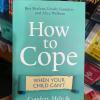Dear Mr. Fröbel,
On the occasion of your birthday, I thought it fitting to share a perspective on the current state of your kindergarten concept in the United States. After all, here in the states we commemorate April 21 as “Kindergarten Day”. I realize that you, of all people, would be happy to know that in each state, every child has access to kindergarten, although it is not always required.
While we have provided access, kindergarten often seems like the battlefield where the academics of birth-to-five child development and K-12 education square off. There has been fierce debate over how it should be implemented, what is best for children and the role it should play in our system of educational matriculation. Here is a short summary of my observations:
To play or not to play is often the question. You once wrote, “Play is the highest expression of human development in childhood for it alone is the free expression of what is in a child's soul.” Today, advocates of play-based classrooms say that the push for more academic rigor in the kindergarten classroom comes at the expense of valuable allowances for physical expression and exploration. Frequently, teachers and schools responding to these demands feel forced to shape daily activities that will drive the desired results on tests or assessments.
What I observe are not as much direct opponents of the need for active learning, but well-intentioned educators who need more direction on how to include opportunities for play. Conversations are sometimes positioned on one side of the play spectrum versus the other. In reality, neither a classroom with too much play and not enough active adult support nor one with little to no play but lots of scripted, teacher-led activity fully benefits the child. The ideal environment is one where children are allowed to actively explore in the presence of teachers who provide guidance through experience-rich activities. Unless play is valued as a key driver in children’s learning and a connector to the academic benchmarks we seek, our kindergarten classrooms will most likely fall short of the environment you intended.
Practice makes perfect when it is developmentally appropriate. What kindergarten-aged children can do and should do is another highly debated topic. There is such a proliferation of research on effective practice available that to simply base kindergarten expectations on the retrofitted goals of the subsequent primary grades seems short sighted. While this is not always the case, there certainly is room for several more collaborative conversations between the leading thinkers in child development and those crafting K-5 curricula and programming.
As you stated, “Children are like tiny flowers; they are varied and need care, but each is beautiful alone and glorious when seen in the community of peers.” This perspective gives us the perfect blueprint for the developmentally appropriate kindergarten classroom. By understanding what is typical for all children at this level, we can create a context for determining and appreciating what is both individually and culturally appropriate. Just as we wouldn’t expect a sprouting plant to bear fruit too soon, we must be careful to nurture children in their early stages of learning and development. Including child development specialists as part of the conversation is necessary to do it correctly.
Look for meaning in the name. The word “kindergarten” means a child’s garden or a garden of children. Either way, it implies a process of care and patience. Although many educators might naturally be caring and patient, our schools frequently have a stigma of being anything but. Were we to rename the kindergarten year as Grade Zero – representing a launch to the remainder of formal primary schooling, it might be more consistent with how some kindergartens are actually operated.
But I believe the name you left us is appropriate. As our population becomes increasingly diverse and our schools endeavor to deepen their service to our children, recalling the name and its meaning just might serve as a reference point for how accurately we align with its intentions.
As with anything worth doing, Mr. Fröbel, there are successes in the midst of the challenges. You wrote, “If three hundred years after my death my method of education shall be completely established according to its idea, I shall rejoice in heaven."
As you can see, we’re just over halfway there. And while we still have some work to do, I’m confident together, we’ll figure it out.
Sincerely,
Andrew M. Davis
















